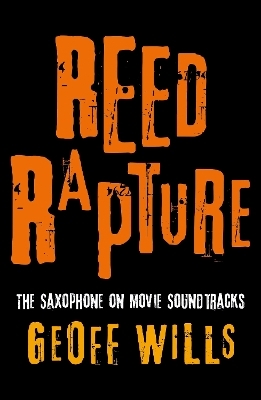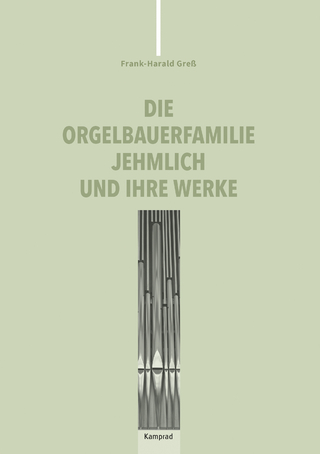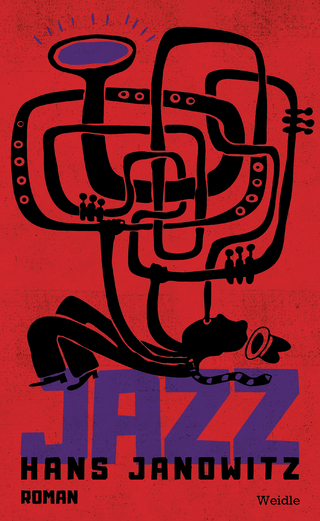
Reed Rapture
The Saxophone on Movie Soundtracks
Seiten
2024
Troubador Publishing (Verlag)
978-1-80514-377-2 (ISBN)
Troubador Publishing (Verlag)
978-1-80514-377-2 (ISBN)
Movie soundtrack music is big business. In both film studios and at major record labels, entire divisions focus exclusively on marketing movie music. Reed Rapture is the first study to describe the background, the history, and the numerous important appearances of the saxophone on movie soundtracks.
Movie soundtrack music is big business. In both film studios and at major record labels, entire divisions focus exclusively on marketing movie music.
Film composers like John Williams have become internationally famous figures, and concerts of their music are regular occurrences. But while interest in movie music has greatly increased, both academically and among the public, focus on individual aspects of the music have been overlooked. Yet what movie-goer can forget the opening scene to Martin Scorsese’s Taxi Driver? Behind the taxicab emerging from a cloud of vapour and the eyes of Robert De Niro, a haunting, yearning alto saxophone melody is heard, and it’s just one example of the power of the saxophone, a presence throughout the history of movie music, from the 1930s to the present day, highlighting scenes of drama, romance, and comedy, and making a vital contribution to the music which can be urgent, immediate, sweet, seductive, intimate, and erotic.
Reed Rapture is the first study to describe the background, the history, and the numerous important appearances of the saxophone on movie soundtracks, drawing on both jazz and classical influences, and, as such, makes a vital contribution to film music studies.
Movie soundtrack music is big business. In both film studios and at major record labels, entire divisions focus exclusively on marketing movie music.
Film composers like John Williams have become internationally famous figures, and concerts of their music are regular occurrences. But while interest in movie music has greatly increased, both academically and among the public, focus on individual aspects of the music have been overlooked. Yet what movie-goer can forget the opening scene to Martin Scorsese’s Taxi Driver? Behind the taxicab emerging from a cloud of vapour and the eyes of Robert De Niro, a haunting, yearning alto saxophone melody is heard, and it’s just one example of the power of the saxophone, a presence throughout the history of movie music, from the 1930s to the present day, highlighting scenes of drama, romance, and comedy, and making a vital contribution to the music which can be urgent, immediate, sweet, seductive, intimate, and erotic.
Reed Rapture is the first study to describe the background, the history, and the numerous important appearances of the saxophone on movie soundtracks, drawing on both jazz and classical influences, and, as such, makes a vital contribution to film music studies.
Geoff Wills is a former professional musician and clinical psychologist. He is the author of Pressure Sensitive (1988) and Zappa and Jazz (2015), and has contributed to Psychology of Music, The British Journal of Psychiatry, International Musician, jazz.com, Jazz Journal and the book Frank Zappa and the And (2013).
| Erscheinungsdatum | 29.05.2024 |
|---|---|
| Verlagsort | Market Harborough |
| Sprache | englisch |
| Maße | 129 x 198 mm |
| Themenwelt | Kunst / Musik / Theater ► Musik ► Instrumentenkunde |
| Kunst / Musik / Theater ► Musik ► Klassik / Oper / Musical | |
| Kunst / Musik / Theater ► Musik ► Musiktheorie / Musiklehre | |
| ISBN-10 | 1-80514-377-8 / 1805143778 |
| ISBN-13 | 978-1-80514-377-2 / 9781805143772 |
| Zustand | Neuware |
| Haben Sie eine Frage zum Produkt? |
Mehr entdecken
aus dem Bereich
aus dem Bereich
Roman
Buch | Hardcover (2024)
Wallstein Erfolgstitel - Belletristik und Sachbuch (Verlag)
CHF 27,95
die Sammlung von Bernhard Kolberg
Buch | Hardcover (2024)
E Reinhold (Verlag)
CHF 54,60


